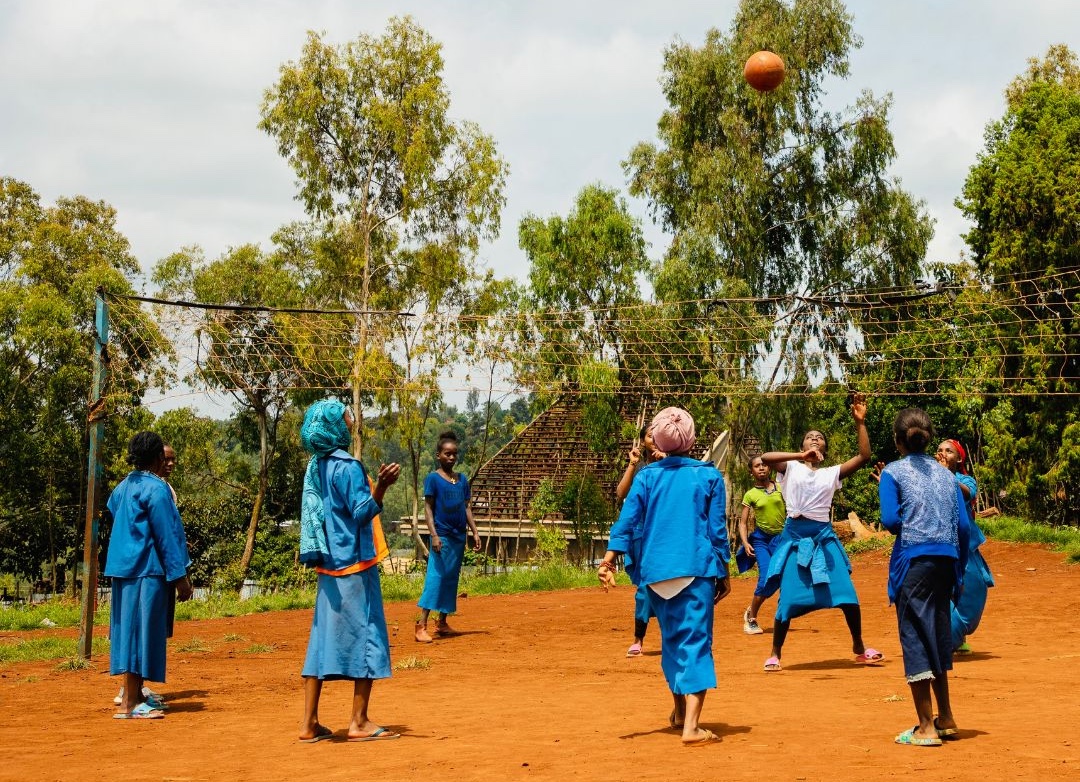OROMIA, Ethiopia – Hana and Mertnesh, both 14, attend Bule Hora Elementary School in Ethiopia's Oromia region. They share a special bond as members of Her Space, or Beskeshe, in the local language of Oromiffa.
''We learned that it's up to us to influence society and our families to treat us as valuable members and believe in us,'' Hana said.
It's up to us to influence society and our families to treat us as valuable members and believe in us.
Twice a week, the girls attend sessions on various topics, including sexual and reproductive health, gender equality, and women's empowerment. As a result, both girls advocated for better treatment at home.
''I am the only girl in the home, and all the household chores were on me. After the training, I convinced my brothers that it was unfair for me to do everything and that they should help. They agreed. I used the tools and approaches I have learned at the session to discuss the issues with them,'' Mertnesh said. Hana shared a similar story, where she convinced her parents to allow dedicated time for her study and homework.
Misrak Takele, a teacher at the school and the lead for the Her Space programme, is proud of the progress being made by the girls. "Being a teacher for 30 years, I can say that this programme has been the most impactful in empowering girls to have a voice and plan their future," she said. ''Both the younger and older girls have shown significant progress through the programme.''

Hana and Mertnesh are about to graduate from the programme as they have attended most sessions. "I am excited to share what I have learned with younger girls," Hana said.
Her Space programme
Each school year, the Her Space programme at Bule Hora Elementary School begins with a Training of Trainers (TOT) for the facilitators, who are health extension workers and teachers. The TOT equips them with the necessary skills to effectively facilitate discussions and lead sessions.
The programme enrolls 48 girls aged 11 to 14, attending twice-weekly sessions. The students are selected based on specific criteria that ensure those who can benefit the most get the opportunity. After the selection process, the facilitators use a comprehensive manual with instructions and activities to guide them through the sessions. The manuals are descriptive and pictorial to help the girls grasp the information.
The topics covered are broad, ranging from sexual and reproductive health to women's empowerment and gender equality. Training also includes assertiveness, negotiation skills and how to protect themselves from potential dangers.
During the session, students sit in a circle to establish a secure and welcoming environment for candid conversations. The facilitator adheres to the guidelines in the manual and ensures that each activity is completed within the designated time frame. To make the sessions more interesting and engaging for the young girls, the facilitators use a variety of techniques, such as games and enjoyable activities.
The impact of the Her Space programme extends beyond the individual participants. Through the active members of Bakashe/Her Space, the programme is reaching the wider community. The students serve as ambassadors, spreading the knowledge and skills they have gained to their families, friends, and neighbours. By doing so, they contribute to creating a more inclusive and empowered community.
Funded by UNFPA and KOICA in collaboration with the government, Her Space empowers adolescents and girls to exercise their rights, learn about sexual and reproductive health, and protect themselves from discrimination, violence and exploitation.


